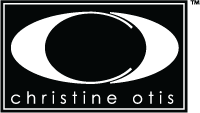With the recently announced July 1 merger of Penguin and Random House Books—now called Penguin Random House—there is a new publishing powerhouse.
By merging, the German media group Bertelsmann (owns 53 percent of the company), and the U.K.-based Pearson (owns 47 percent of the company) have created the largest publisher, controlling 25 percent of the book market.
What does this mean for authors?
Agent Robert Gotlieb, chairman of Trident Media Group, says, “It gives one company enormous power to dictate terms to authors.”
If the terms are negative for authors it could increase the Indie market.
Also, consider what the merger means for the digital market:
Approximately 60 percent of the e-book market is currently Amazon’s, with Apple looking to increase its share of the digital market with their iPad mini.
Penguin Random House may decrease their print publications and place the money into digital options, which could then further change the market for authors.
Publishers and writers are still figuring out how the digital market works for them. This large merger could bring a market that’s been untapped and bring in new creative voices from the Indie market.
It’s wise for writers to educate themselves about both market trends—print and digital—to become business savvy authors of the 21st century.
To read more about this merger, check out these links from The New York Times and The Hollywood Reporter: Merger, Authors, and publishing powerhouse.
